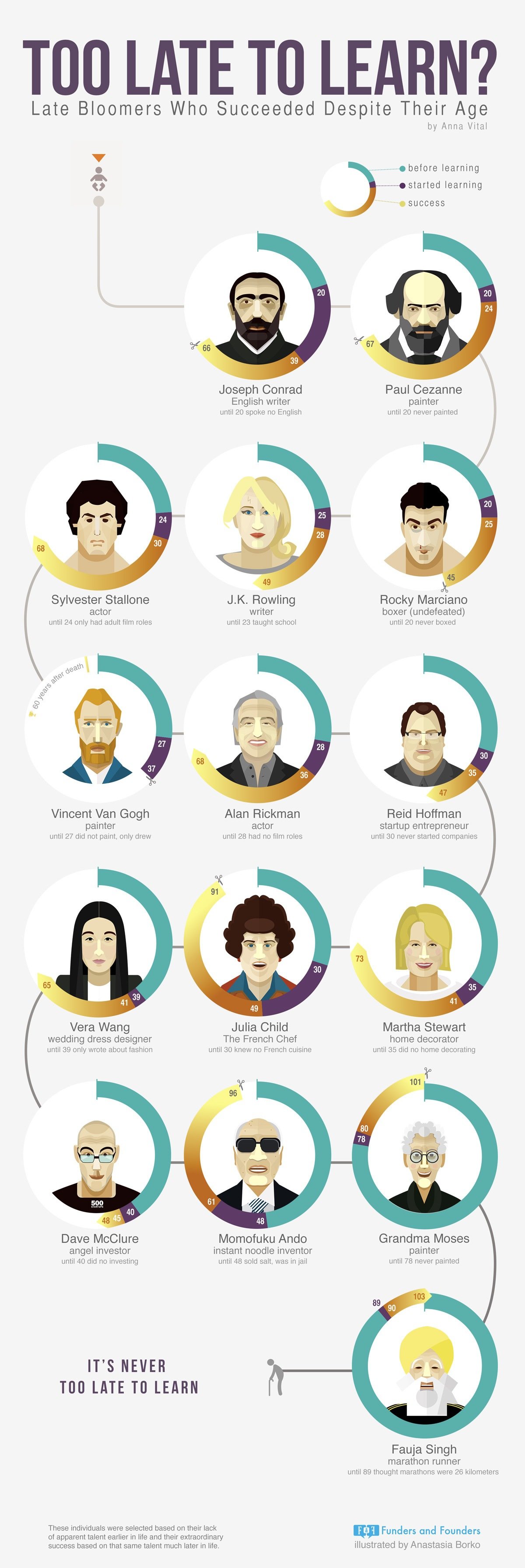Un-Limit Your Beliefs: How to Unlock Your Potential and Achieve Your Dream Career
by iPEC Team
Mar 01, 2024 | 9 minutes read
Embarking on a new career path can be exhilarating. The promise of fresh challenges and opportunities to unlock your potential can bring a sense of adventure to your professional journey. Yet, our journey is often impeded by limiting beliefs that create an invisible barrier between us and our dream careers.
What is a Limiting Belief?
A limiting belief is a generalization, stereotype, or idea that you learned and began believing about yourself, other people, or the world that limits you. In some ways, limiting beliefs are like anchors on a ship: keeping us locked into one stagnant way of viewing ourselves and the world, and holding us back from exploring the vast sea of other possibilities and opportunities.
These convictions tend to be deeply embedded in our subconscious, stemming from early experiences, upbringing, and the sway of societal influences. Limiting beliefs help form the lens through which we see the world, and their influence can become particularly hard to ignore when it comes to matters of career and personal growth.
And yet, simply by acknowledging this, we create an opportunity to reassess and recalibrate!
Rather than viewing these beliefs as facts, we can choose to interrogate them—which opens up possibilities and paves the way for personal and professional growth. By understanding that our perceptions are malleable, we open ourselves to the possibility of creating a more positive and transformative relationship with our career that’s rooted in abundance, fulfillment, and trust in our ability to shape our professional narrative.
In this blog series, we’ll embark on a journey to identify, challenge, and ultimately transcend these mental roadblocks. In our previous article, we explored money blocks and the scarcity mindset. Today, we're here to discuss the most common causes of job change anxiety that may be preventing you from unlocking your potential.
14 Limiting Beliefs About Careers
Before we dive into the specifics, it's important to recognize that feeling any number of these limiting career beliefs is completely understandable. You're not alone in navigating these beliefs, and by recognizing them, you're taking the first empowering step toward creating a healthier and more supportive mindset around your professional journey.
It's also okay if these beliefs don't disappear overnight! We’re here to celebrate your commitment to cultivating awareness and offer guidance through exercises to gently interrogate and open up new perspectives, helping you dislodge these limiting beliefs over time. ✨
1. Self-Worth and Capability
"I'm not good enough for that role or promotion."
"I don't have what it takes to succeed in this industry."
This limiting belief undermines your confidence, suggesting that you lack the skills or worthiness for career advancement. It often stems from unfair comparison and self-doubt.
To challenge this belief, it’s important to offer yourself compassion—we live in a world that can make it easy to be hard on ourselves! But we can choose to show ourselves kindness instead. Consider spending some time reflecting on what your self-doubt might be trying to protect you from, like failure or humiliation—both of which are stories not rooted in reality.
It can also be helpful to recognize your accomplishments and strengths (we have a feeling you have more than you might think! 😉) Embrace the mindset that growth is a continuous journey, and you are more than capable of evolving in your career.
2. Fear of Failure
"I'd rather not try than try and fail."
"Making a mistake will ruin my career."
Fear of failure can stunt progress, keeping you in a perpetual comfort zone. This fear often originates from a negative view of mistakes and a hesitancy to take risks.
At iPEC, our Foundation Principle, "You cannot make a mistake," aligns perfectly with this concept. The truth is, we always choose what we believe is the best possible choice in any given situation. Rather than dwelling on "mistakes," it can be more constructive to ask, "What is the lesson to be learned from this experience?" Take some time to reflect on how embracing mistakes as opportunities can positively impact your professional (and personal!) development.
3. Comparison to Others
"Others are more talented or qualified than I am."
"If I was really good, I would be as successful as [a specific person]."
This limiting belief tends to breed imposter syndrome and feelings of inadequacy. It often arises from unrealistic comparisons with others, particularly those you view to be more successful than yourself.
To help curb these comparisons, consider the standards you set for yourself based on others' achievements. Do these standards feel supportive or do they fuel feelings of inadequacy? Instead of unconsciously adopting society's definition of success, it can be helpful to redefine success in a way that aligns with your unique goals and values. What does true success look like for you, personally and professionally?
4. Fixed Mindset
"This is just how I am; I can't change or learn new skills."
"I've always done it this way, and it's too late to change now."
A fixed mindset hinders your adaptability and personal growth. It suggests that your abilities are static and can’t be developed with sincere effort.
A surefire way out of a fixed mindset is to swap it with a growth mindset. Your abilities can be developed through dedication and hard work (or perhaps the concept of “hard work” is a limiting belief, too! 😜) Consider an aspect of your life—like your career—where you've felt stagnant or resistant to change, and reflect on how adopting a growth mindset can shift what feels possible for you in this area! What opportunities begin to emerge?
Quantum thinking can also be a supportive method of expanding your mind.
5. Age-Related Beliefs
"I'm too old to start a new career or learn new skills."
"I'm too young to be taken seriously or to lead."
Whether you realize it or not, age bias can limit your opportunities and discourage healthy exploration. It implies that age is a barrier to skill acquisition—which isn’t the case!
We've said it before and we'll say it again: age is only a number. Countless successful people have started new careers later in life—even after retirement! What are three (or more!) experiences or skills you possess that are a result of your age or life stage? How can these experiences or skills bring unique value to a new career or leadership role? Whatever age you are, it’s the perfect age to explore a new and exciting career path—we’re sure of it.

Image courtesy of LifeHack
6. External Validation
"I need to have a job title or work at a specific company to be respected."
"Success is defined by how much money I make."
Seeking external validation ties self-worth to job titles and company affiliations. It often reflects a dependence on others for recognition.
To challenge these limiting beliefs, try seeking validation within. To support you on this journey, list three values that are genuinely important to you in your professional life. How can aligning with these values contribute to your sense of fulfillment, irrespective of external factors? Remember, your worth is by no means defined by anyone other than you.
7. Time and Opportunity
"It's too late for me to change career paths."
"I missed my chance."
Time-related anxieties can create a false sense of urgency and discourage the exploration of thrilling new opportunities.
Remind yourself that opportunities are abundant all around you—you just need to know where to look (they may at first appear as challenges). One idea is to start a journal dedicated to documenting opportunities, big or small, that come your way. How might keeping track of opportunities reinforce the idea that they are indeed abundant in your life?
8. Cultural and Societal Beliefs
"People from my background don't succeed in this field."
"In my culture, it's inappropriate to pursue certain careers."
Cultural and societal norms often shape this deeply rooted limiting belief and can limit career aspirations and the pursuit of certain paths.
You might challenge these norms and stereotypes by exploring other people’s stories or seeking inspiration and advice from people in your community who have broken them before you. How did they do it? What beliefs allowed them to pave their path to success? And most importantly, what new opportunities would you pursue if you truly embodied these new beliefs?
9. Work-Life Balance
"If I pursue my career ambitions, I'll have to sacrifice my personal life."
"Successful people always have to work long hours and can't have a balanced life."
This limiting belief sets up a false dichotomy between career success and personal fulfillment. It can then lead to professional-personal imbalance and create immense anxiety.
Know that success and personal fulfillment can coexist. Start by defining what ‘balance’ means to you (even if you determine it's just a myth). What are the most important aspects of your personal life that you don't want to sacrifice? How can you prioritize these aspects while still pursuing your career ambitions? Consider ways to embrace flexibility within your new endeavor to accommodate personal priorities.
10. Financial Beliefs
"You have to be cutthroat to succeed in the business world."
"Following my passion won't pay the bills."
Associating success with cutthroat tactics can foster an unhealthy work environment. It may also discourage a more ethical approach to success.
How can you reframe your thoughts about money and careers to make room for the possibility of success with integrity? And in what ways can pursuing your passion lead to financial success? The financial rewards will follow!
11. Perfectionism
"If I can't do it perfectly, it's not worth doing."
"Others will judge me for any small mistake."
Perfectionism can create an intense fear of making mistakes, hindering progress and stifling creativity. This phenomenon often stems from a fear of judgment or disapproval from others.
Reflect on where your tendency towards perfectionism comes from. Was it influenced by external expectations or past experiences with a caretaker? It’s important to show compassion for yourself here. How can you practice self-compassion in moments of perceived failure or mistakes? What would it look like to treat yourself with the same kindness you would offer a friend facing a similar situation?
Don't let perfect be the enemy of good. Your life doesn't need to be perfect. Embrace your imperfections as stepping stones to awakening potential.
![Perfect is the enemy of the good” — Voltaire [600 x 273] : r ...](https://i.redd.it/5hyub43nyvt81.jpg)
12. Fear of Success
"Success will make me a target for criticism or envy."
"If I succeed, I might lose my current relationships or lifestyle."
The fear of success is a common feeling that can prevent you from unlocking your potential. It is often rooted in anxieties about visibility, judgment, and potential changes in relationships.
Consider taking some time to visualize a scenario where you've achieved success and it’s had a positive impact on your life. How does this visualization make you feel, and what positive changes do you see coming to fruition?
Remember, success is a multifaceted and personal concept. By understanding your fears and redefining success in a way that aligns with your values, you can work through your fear of success and start embracing the positive outcomes it can bring.
13. Fear of Change
"Changing careers is too risky."
"Better to stick with what I know than venture into the unknown."
This limiting belief prioritizes comfort over growth. Someone with a fear of change may view new things as a threat rather than an opportunity.
To work through the fear of change, it can be helpful to recall instances in your life where change that felt uncomfortable led to positive outcomes. What lessons can you draw from those experiences? How can these positive experiences inform your perspective on future changes, especially if you’re considering a career change that feels risky?
The unknown holds the potential for exciting possibilities.✨
14. Imposter Syndrome
"I only got here because of luck, not my abilities."
"I don't belong here; others will find out I'm a fraud."
Imposter syndrome is the inability to embrace and acknowledge the well-deserved success you’ve achieved through your own efforts and skills. It manifests as a lingering doubt, a quiet whisper that questions the merit of your accomplishments, despite clear evidence of competence.
Overcoming imposter syndrome requires persistently acknowledging the ways you’ve earned your accomplishments. You deserve to be where you are, so own your success!
How Working with a Coach Can Help You Overcome Your Fear of Changing Jobs
Our beliefs shape our reality, especially when it comes to job change anxiety. But the good news is that these limiting beliefs about careers can be transformed. By identifying and working to shift them, you can unlock potential you didn't know you had and open the door to your dream career.
Coaching is the key to unlocking the potential hidden behind these career misconceptions. By partnering with a certified coach, individuals can address these subconscious barriers, challenge their validity, and replace them with more empowering beliefs.
Coaches provide a supportive environment to explore and challenge these limiting beliefs. A coach can guide you through self-discovery, helping you redefine success and build the confidence you need to pursue the career you always wanted.
How Becoming a Coach Can Help Unlock Your Potential
Aspiring to become a professional coach doesn't just help others overcome their fear of changing jobs—it can be a transformative journey for you as well. Here's how:
- Self-Discovery and Clarity—As you progress through coach training, you’ll engage in powerful self-discovery exercises. You’ll uncover your core values, strengths, and areas for growth. This heightened self-awareness is like turning on a light in the corners of your mind, illuminating aspects of yourself that were previously in the shadows. This clarity will not only enhance your coaching abilities but also serve as a transformative tool in your personal and professional life.
- Effective Communication and Connection—Coaching is a distinct, empowering way of communicating. As you learn and practice coaching skills, you’ll refine your ability to connect with and awaken potential in others. This will not only deepen your connections with clients but will also spill over into your everyday interactions. Whether in personal relationships or professional settings, the enhanced communication skills you’ll acquire during coach training will empower you to express your ideas with clarity and connect more authentically.
- Adaptability and Resilience—Navigating the diverse landscape of coaching scenarios prepares you for the unpredictable nature of life. You’ll learn to adapt to different personalities, challenges, and goals. This adaptability will become a life skill, enhancing your resilience in the face of change. You’ll begin to embrace challenges as opportunities for growth rather than obstacles, fostering a mindset of resilience that permeates all aspects of your life.
- Empathy and Understanding—Coaching is rooted in empathy. Through your training, you’ll cultivate a deep understanding of others' perspectives and experiences. This heightened empathy will not only enrich your coaching practice but also transform the way you relate to people in your personal life. You'll become a more compassionate friend, partner, and colleague, fostering deeper connections and understanding.
- Leadership and Impact—As you progress in your coaching journey, you’ll embrace your role as a highly-conscious leader—guiding others toward their goals and aspirations. This experience will build your leadership skills, unlocking a dimension of your potential that might have otherwise been dormant. Whether you're leading a team, a project, or even yourself, the leadership skills cultivated through coach training will amplify your capacity to make a positive impact in various spheres of your life.
Are You Ready to Unlock Your Full Potential?
If you're feeling inspired and ready to change the trajectory of your career, we invite you to consider enrolling in our ICF-accredited coach training program. This comprehensive and research-backed program is designed to equip you with the skills, knowledge, and mindset to not only overcome limiting beliefs but also guide others on their transformative journeys.
Imagine the possibilities when you become a certified coach—empowering individuals to overcome their career fears, discover their unlocked potential, and guide them toward the fulfilling careers they desire.
Don't let limiting beliefs hold you back any longer. Your journey toward a thriving and empowered career begins with a conversation. Let's explore how iPEC's coaching program can be the key to un-limiting your beliefs and unlocking a future filled with passion, purpose, and limitless possibilities.


